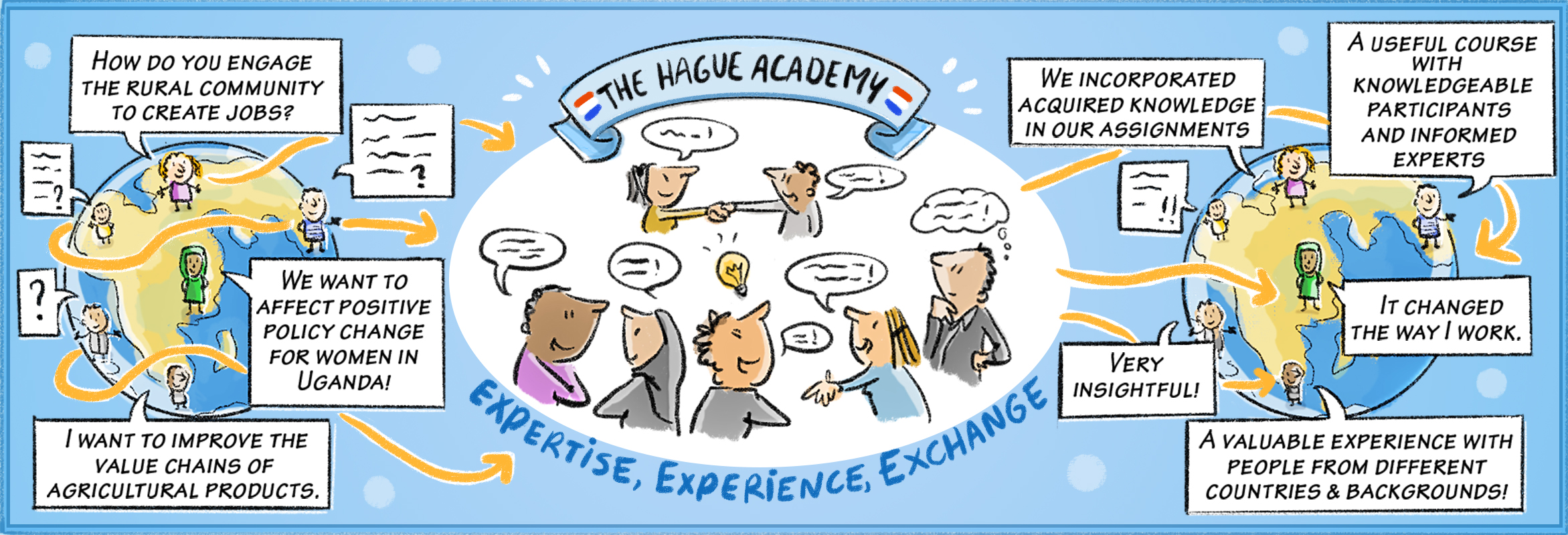Multilevel Water Governance
(9 – 20 September 2019)
Water provision and the governance of water systems involve many stakeholders at different levels. How can a multilevel approach, which takes into account the institutional, legal, and political context contribute to more effective management of water resources? And how can water users and the private sector be involved? This course discusses these questions by applying the five building blocks of water governance.
Local Economic Development
(23 September – 4 October 2019)
Local authorities can contribute significantly to economic growth by creating a conducive business environment and stimulating job creation. At the same time, they can ensure that investments benefit the local community. This course discusses an LED-framework for developing the economic potential of a city or region while securing sustainability and inclusiveness.
Conflict, Rule of Law and Local Security
(28 October – 8 November 2019)
Through conflict mapping and analysis, we will unpack the causes of conflict and identify the different stakeholders that influence community security. We will then discuss different approaches that can help transform conflicts such as sensitising security actors and local leaders, increasing access to justice, community-based reintegration of former combatants, prevention of radicalization, and social and economic empowerment.
“In a word, profound! The course was not only empowering, due to interactive sessions with top experts from different countries, I also learned that addressing any issue requires involving the people who will be affected most by those decisions. That knowledge has played an immense role in my work as a State Counsel in Kenya.”
Brenda Odiemo
Conflict, Rule of Law and Local Security, 2017
Climate Resilience at a local level
(11 – 22 November 2019)
This course explores how local authorities can adapt to climate change and increase the resilience of the community. It discusses climate change projections and scenarios, explores policy implications, identifies tools for measuring climate vulnerabilities and then focuses on the design, planning, and financing of sustainable development policies.
Gender Responsive Governance
(18 – 29 November 2019)
How can the participation and representation of women in decision-making be improved in order to make policies more inclusive and gender-responsive? And how can governments be more sensitive to the gender aspect of their policies and services? This course discusses gender-sensitive strategies as well as tools for gender analysis, mainstreaming gender, and gender-responsive budgeting in projects and policies at the local level.
Fiscal Decentralisation and Local Finance
(10 – 21 February 2020)
(Only for MSP Scholarships for this deadline. OKP will become available at the next deadline.)
How can fiscal relations between central and local authorities be shaped in such a way that they contribute to local development, accountability, and efficiency of public services? This course discusses the pillars of fiscal decentralisation and explores how local governments can better manage finances, increase revenue and involve citizens in setting spending priorities.
Please click the Learn More button for details and step-by-step instructions on how to successfully apply. Incomplete applications will not be accepted. The deadline for completed applications is 21 March 2019.
https://cms.thehagueacademy.com/blog/2019/01/nuffic-fellowships-for-2019-courses/


